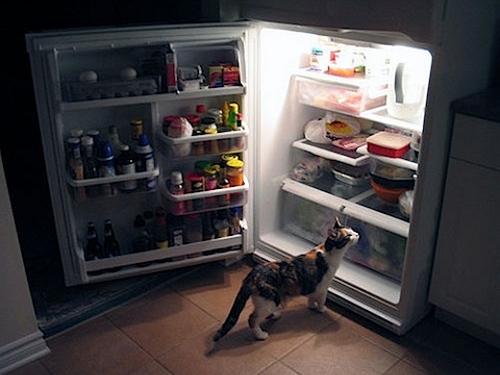Mondelez International may not be a familiar name to you, but it’s one of the world’s largest snack-oriented food product makers. And one of the things it does annually, as befits its leadership role, is to commission a ‘State of Snacking’ report from highly-respected Harris Polls…
 Does a ‘snack’ cease to be the simple, satisfying, sinful indulgence we all know
Does a ‘snack’ cease to be the simple, satisfying, sinful indulgence we all know
and understand when it evolves into ‘a nuanced approach to nutrition’,
becomes socially and environmentally conscious, and starts
to replace regular meals on a regular basis?
Mondelez is, basically, a holding company that owns and operates dozens of snack brands, hauling in huge profits every year. It’s the snack and candy division of American packaged-and-processed food giant, Kraft Heinz. Among the brands under it’s umbrella are Nabisco (OREOs, Chips Ahoy!, Ritz), Triscuit, Cadbury, Hall’s, Trident, Clorets and Sour Patch Kids. With operations in 80 countries and a global staff of more than 80,000, Mondelez reported global net revenues of $25.9 billion and net earnings of $3.4 billion in 2018.
So, one guesses they know their business. And that gives their annual State of Snacking Report an special kind of authority.
Truly the big picture
The results of the 2021 State of Snacking Report were analysed and condensed from responses to a carefully-curated set of poll questions answered by folks in all 80 countries where Mondelez operates. It’s as close to a definitive picture of global snacking trends as you’ll get anywhere.
Among the key findings…
- 79 percent of poll respondents say their definition of a ‘snack’ has evolved markedly over the past 3 years. This may have had more than a little to do with changes in eating habits triggered by the COVID lockdown and continuing restrictions.
- 62 percent said they’ve replaced at least one regular meal with a snack. The number was much higher among millennials (69 percent) and Gen Z (72 percent).
- Correspondingly, 85 percent of respondents said they eat at least one snack a day for sustenance, as well as one simply as an indulgence.
- And the leading motivator for snack food choices was reported as ‘serving nutritional needs’.
Environmental responsibility and sustainability are important…
- The top environmental motivator for snack food choices was the availability of low-waste packaging.
- And 85 percent of those asked said they would prefer to buy snacks from companies that are working to offset their environmental impacts.
As for the convenience factor…
- 62 percent said they ‘enjoy food content on social media’. The number rises to 82 percent among Gen Z members.
- 80 percent said they ‘want to buy the snacks they want anytime they want’. Which points once again to a trend toward internet sourcing and purchasing.
My take
I was particularly interested to hear the Mondelez Report coin several new catch phrases: ‘Snacking with a purpose’, ‘Low-impact Snacking’, ‘Snacking with a broader conscience’, ‘Social Snacking’, and ‘A nuanced approach to nourishment’. I understand that snacks are their bread-and-butter, but I question what looks like a surreptitious attempt by Mondelez to make snacking a higher-profile, more ‘serious’ thing than it probably has a right to be.
I have to pounce on one of the new ideas right off the bat: I think it would be all too easy for poll respondents to say, “Yah. Sure. I’d prefer to buy snacks from environmentally responsible companies.” Whether they really care that much about the environment or not. So, I don’t really trust that 85 percent figure. Still, it’s a nice sentiment.
I also question whether folks actually choose to have a snack in place of any regular meal all that often. I have a very strong feeling that the reported trend is more a result of the COVID-imposed changes in work/home life and social patterns than by any conscious choice or decision by folks to change their eating habits. Of course, I imagine Mondelez would like to think that ‘a nuanced approach to nutrition’ and ‘snacking with a purpose’ snacking were replacing regular meals.
But most importantly, I wonder if a rise in ‘snacking with a broader conscience’ and ‘a nuanced approach to nourishment’ will mean that snacks get more complicated, more nutritionally oriented, more expensive – and a lot more political and a lot less fun as a result.
Why can’t snacks just be snacks anymore?
~ Maggie J.

